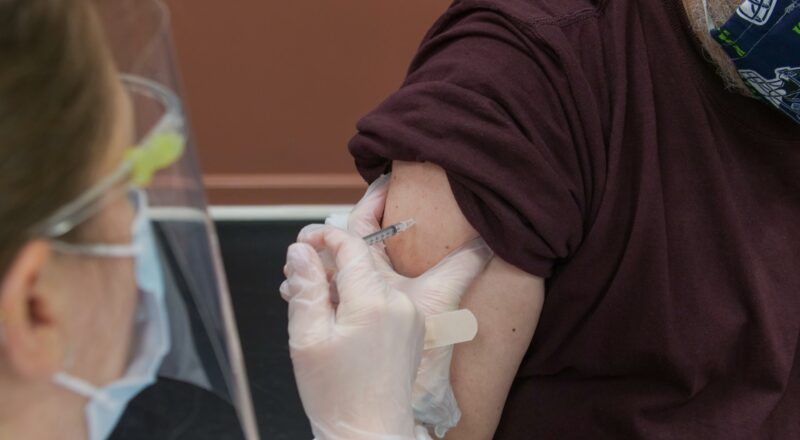With the progression of the medical field and the advancement of technology, we can better defend ourselves from sickness and poor health in many ways. One such way is through vaccines.
According to the World Health Organization (WHO), “immunization is the process whereby a person is made immune or resistant to an infectious disease, typically by the administration of a vaccine.” They claim that immunization averts about two or three million deaths every year.
Immunization shots protect against diseases such as measles, mumps, rubella, hepatitis B, polio, tetanus, diphtheria, whooping cough, the flu, and more.
Vaccines are also called immunizations. The Center for Disease Control and Prevention (CDC) provides recommended immunization schedules for everyone.
They say children and adolescents under 18 should have received the following vaccines:
- HepB
- DTaP
- Hib
- PCV13
- IPV
- Influenza (yearly)
- MMR
 Varicella
Varicella- HepA
- Tdap
- HPV
- MenACWY
Suggested immunizations for certain adults include:
- Influenza (annually)
- Tdap
- MMR
- VAR
- RZV
- HPV
- PPSV23
- And others depending on indication or risk factors
The schedules discuss different circumstances or specialized circumstances in which you could stray from these recommendations too so be sure to look them over to better understand if they apply to you or your children. These vaccines can be given in one dose or multiple doses, it depends on which kind.
Even though immunizations help a lot of people beat or avoid disease, not everyone chooses to get them. There are various reasons for this.
My sister for instance believes the preservatives used in vaccines could be harmful. There are many studies out there that seek to study or discover possible adverse reactions of vaccines.
“Like any medicine, vaccines may cause side effects, but receiving one is far safer than getting the disease it prevents,” says Teens Health from Nemours. “The most common reactions include soreness, redness, and swelling in the area of the shot or a low-grade fever. Usually acetaminophen or ibuprofen will take care of these side effects. It’s rare to have any kind of bad reaction to a vaccine.”
Others are scared of the pain from a shot or have a fear of needles. However, they claim that this “one little ‘ouch’ moment protects you from some major health problems.” If you fear the shot, some vaccines are available to take orally or in other forms.
And some individuals actually should not be vaccinated like people who have a weakened immune system or have certain allergies. Consult your doctor before getting a vaccine and make them aware of any concerns you have.
WebMD debunks common vaccine myths and misinformation.
One misconception is that people don’t need to vaccinate against rare diseases. They say that vaccines are what makes these diseases rare, if we weren’t to vaccinate for them such diseases would return.
Another is that the preservative thimerosal makes vaccines risky. Thimerosal is a mercury-based preservative. No harmful effects of using thimerosal in vaccines have been reported but, as a precautionary measure, the amount of it has been reduced or removed from vaccines.
A really big misconception recently was that vaccines cause autism. This has since been disproven. Some believed there was a link between thimerosal and autism due to autistic symptoms showing after receiving MMR vaccines. MMR vaccines do not contain thimerosal though and a report was made that there is no association between autism and vaccinations.
According to Healthline, some people also cite religious beliefs as reason to forgo vaccinations. Some, including myself, question the effectiveness of vaccines. To this they claim that, “those who are vaccinated can still get sick, but they will experience mild symptoms.” For some, the risk of this outweighs the benefits.
In general, vaccines are used universally to prevent sickness and other life-threatening diseases. Though some forgo vaccines, it could cost them their future health.
Sources
https://www.who.int/topics/immunization/en/
https://medlineplus.gov/immunization.html
https://www.cdc.gov/vaccines/schedules/index.html
https://www.cdc.gov/vaccines/schedules/easy-to-read/child-easyread.html
https://www.cdc.gov/vaccines/schedules/easy-to-read/adolescent-easyread.html
https://www.cdc.gov/vaccines/schedules/hcp/imz/adult.html
https://kidshealth.org/en/teens/immunizations.html
https://www.webmd.com/children/vaccines/immunizations-vaccines-power-of-preparation#2
https://www.healthline.com/health/vaccinations/opposition#common-reasons

